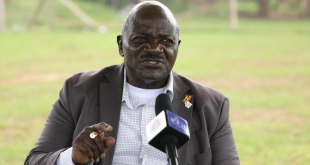Published: October 27,2024

Leaders of the BRICS countries are having their first face-to-face gathering in the Russian city of Kazan after the group’s historic expansion from five members to 10 in January.
Chinese President Xi Jinping arrived in Kazan on Tuesday for the 16th BRICS Summit. Xi will exchange views with other leaders on practical cooperation and the development of the BRICS mechanism for emerging economies, among other topics, during the summit.
China has consistently been a staunch supporter and participant in the BRICS cooperation mechanism, seeking win-win cooperation with other members and following the spirit of openness and inclusiveness.
Win-win cooperation
Since its founding, BRICS has sought win-win cooperation, with the Shanghai-headquartered New Development Bank (NDB) being a flagship project of BRICS cooperation.
As the first multilateral development bank established by emerging economies, the NDB provides financing support for infrastructure development, clean energy, environmental protection, and building cyberinfrastructure across BRICS countries. By the end of 2023, it had approved 105 projects in all member countries for approximately $35 billion.
The NDB serves as a significant platform for international cooperation that transcends the territorial boundaries, which not only amplifies the voices of BRICS countries but also represents the shared aspirations of other nations, Dilma Rousseff, president of the NDB, told media recently.
China has been committed to deepening mutually beneficial cooperation with BRICS partners. In the first quarter of this year, trade between China and BRICS countries reached 1.49 trillion yuan (about $209.7 billion), an increase of 11.3 percent year on year, according to customs authorities.
Ronnie Lins, executive director of the Brazil-China Research and Business Center, said China plays a crucial role in building consensus among BRICS countries, promoting coordination and cooperation, and advancing a common agenda.
‘Not a closed club’
Openness and inclusiveness have remained BRICS members’ abiding commitment since the mechanism’s inception. Xi has repeatedly emphasized that BRICS countries do not gather in a closed club or an exclusive circle.
At a gathering in Xiamen in 2017, the Chinese leader put forward the “BRICS Plus” program, encouraging more emerging markets and developing nations’ participation.
On January 1, 2024, Egypt, Ethiopia, Iran, Saudi Arabia and the United Arab Emirates became BRICS members, joining Brazil, Russia, India, China and South Africa, marking the official beginning of greater BRICS cooperation.
More than 30 nations have either formally applied for or expressed interest in its membership, and many other developing countries are seeking deeper cooperation with the group.
Speaking about the Kazan summit, Lin Jian, a Chinese Foreign Ministry spokesperson, said that BRICS has become a positive and stable force for good in international affairs.
He said China stands ready to work with other parties to strive for the steady and sustained development of greater BRICS cooperation, open a new era for the Global South to seek strength through solidarity and jointly promote world peace and development.
Source: CGTN
 Africa -China Review Africa -China Cooperation and Transformation
Africa -China Review Africa -China Cooperation and Transformation
